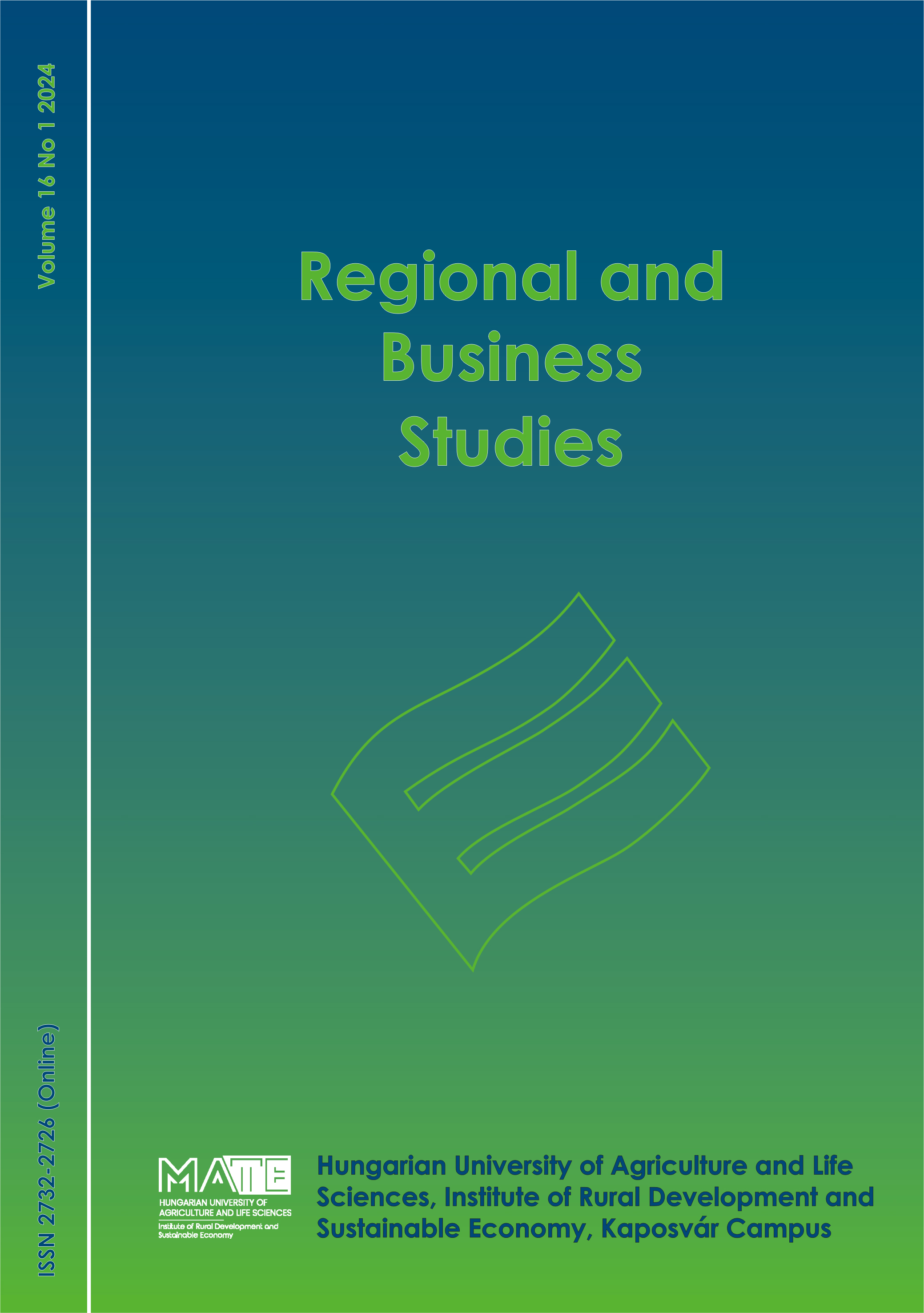The Impact of the Covid-19 Pandemic on the Work-Life Balance of Employees
DOI:
https://doi.org/10.33568/rbs.4817Keywords:
COVID-19, work-life balance, home office, labour market, generationsAbstract
The impacts of the COVID-19 pandemic are still prevalent in the Hungarian labour market. With home office gaining ground, the traditional way of working before the pandemic was partially altered, for which neither employers nor employees were ready. Work-life balance was upset by the change in the daily routine. In our quantitative online questionnaire survey, we looked at whether this disruption and change had a greater impact on the older or younger generation and whether there was a discernible gender difference in home office work in Hungary. Before the questionnaire survey, two hypotheses were developed. One of our hypotheses was confirmed and the other was rejected after analysing the data. We demonstrated that older age groups – the Baby Boomer and Generation X – are more satisfied with their work-life balance than younger age groups – the Generation Y and Generation Z – using statistical methods (cross-tabulation analysis and chi-square test). We examine these possible causes and make recommendations for strategies to promote work-life balance in our article.
References
Amin, K. P., Griffiths, M. D., & Dsouza, D. D. (2022). Online Gaming During the COVID-19 Pandemic in India: Strategies for Work-Life Balance. International Journal of Mental Health and Addiction, 20, 296–302. https://doi.org/10.1007/s11469-020-00358-1
Ayar, D., Karaman, M.A., & Karaman, R. (2022). Work-Life Balance and Mental Health Needs of Health Professionals During COVID-19 Pandemic in Turkey. International Journal of Mental Health and Health Addiction, 20, 639–655. https://doi.org/10.1007/s11469-021-00717-6
Bagó, J. (2020). Járvány és munka. Új Munkaügyi Szemle, 1(3), 14-25.
Bocean, C. G., Popescu, L., Varzaru, A. A., Avram, C. D., & Iancu, A. (2023). Work-Life Balance and Employee Satisfaction during COVID-19 Pandemic. Sustainability, 15(15), 11631. https://doi.org/10.3390/su151511631
Czifrusz, M. (2021). A COVID-19-válság és a térbeli munkamegosztás változásai Magyarországon. Területi Statisztika, 61(3), 320–336. https://doi.org/10.15196/TS610303
Csehné, P. I., & Varga, E. (2017). A munka-magánélet egyensúly a magyar vállalatok gyakorlatában. Studia Mundi – Economica, 4(1), 15-25. https://doi.org/10.18531/Studia.Mundi.2017.04.01.15-25
Géra, E. (2020). Járványok és következmények. Magyar Tudományos Akadémia. https://mta.hu/tudomany_hirei/jarvanyok-es-kovetkezmenyek-110583
Herdon, I., & Poór, P. (2020). Új munkahelyünk a Home Office? Munkapiaci trendek a válság után. https://www.researchgate.net/publication/344773744 (2023.09.01.)
Ignits, Gy. (2021). A pandémiás válság munkaerőpiaci hatásairól. Új Munkaügyi Szemle, 2(1), 31-45.
KSH (2020). 3,7% volt a munkanélküliségi ráta. Gyorstájékoztató, Munkanélküliség 2020. január-március. https://www.ksh.hu/docs/hun/xftp/gyor/mun/mun2003.html
Lehmann, L. (2016). Autonomy and work-life balance and their effects on job satisfaction. [Master's thesis, Universiteit Utrecht]. https://studenttheses.uu.nl/bitstream/handle/20.500.12932/23882/Lehmann L.pdf?sequence=2&isAllowed=y
Putri, A., & Amran, A. (2021). Employees Work-Life Balance Reviewed from Work from Home Aspect During COVID-19 Pandemic. International Journal of Management Science and Information Technology, 1(1), 30–34. https://doi.org/10.35870/ijmsit.v1i1.231
Shirmohammadi, M., Au, W. C., & Beigi, M. (2022). Remote work and work-life balance: Lessons learned from the covid-19 pandemic and suggestions for HRD practitioners. Human Resource Development International, 25(2), 163–181. https://doi.org/10.1080/13678868.2022.2047380
Sipka, P. (2021). A home office „váratlan térnyerése” és lehetséges jövője. In F. Munkácsy (Ed.), Új korszak vagy visszarendeződés? (pp. 43-46). Profunditas Kft. https://real.mtak.hu/133612/1/Új korszak vagy visszarendeződés.pdf
Tóth, A., Kálmán, B. G., Poór, J., & Cseh Papp, I. (2023). Impact of the Covid-19 pandemic on unemployment in selected countries and country groups. Regional Statistics, 13(3), 451–486. https://doi.org/10.15196/rs130304
Vámosi, T. (2020). A családbarát aspektus és az atipikus foglalkoztatás jellemzői a déldunántúli régió munkáltatói esetében (I. rész). Új Munkaügyi Szemle, 1(1), 55-68.
Venczel-Szakó, T., Balogh, G., & Borgulya, I. (2021). Távmunka, Home Office: Hogyan érinti a távolról dolgozás a szervezet intern kommunikációját? Vezetéstudomány, 52(2), 73-86. https://doi.org/10.14267/VEZTUD.2021.02.07
Vyas, L. (2022). “New normal” at work in a post-COVID world: work–life balance and labor markets. Policy and Society, 41(1), 155–167. https://doi.org/10.1093/polsoc/puab011
Zádori, I., Nemeskéri, Zs., & Szabó, Sz. (2020). Deglobalizáció vagy reglobalizáció? Mukaerőpiac a vírus előtt, alatt és után. Új Munkaügyi Szemle, 1(3), 2-13.
Downloads
Published
Issue
Section
License
Copyright (c) 2024 Zoltán Greutter, Éva Greutter-Gregus, Zoltán Szira, Erika Varga

This work is licensed under a Creative Commons Attribution-NonCommercial-NoDerivatives 4.0 International License.





